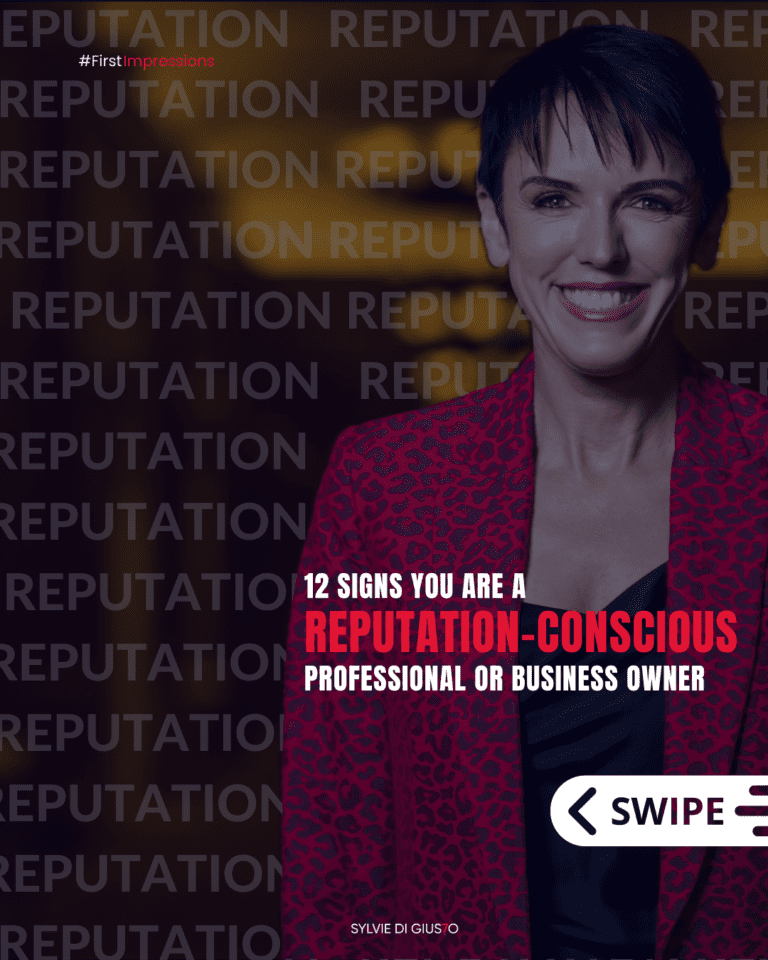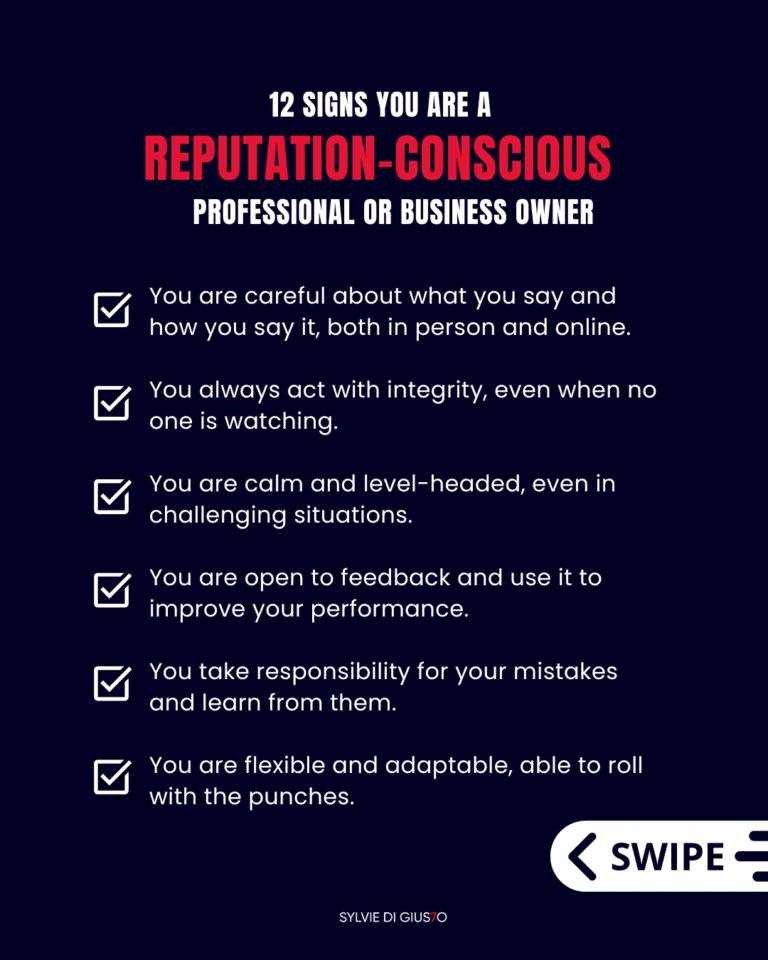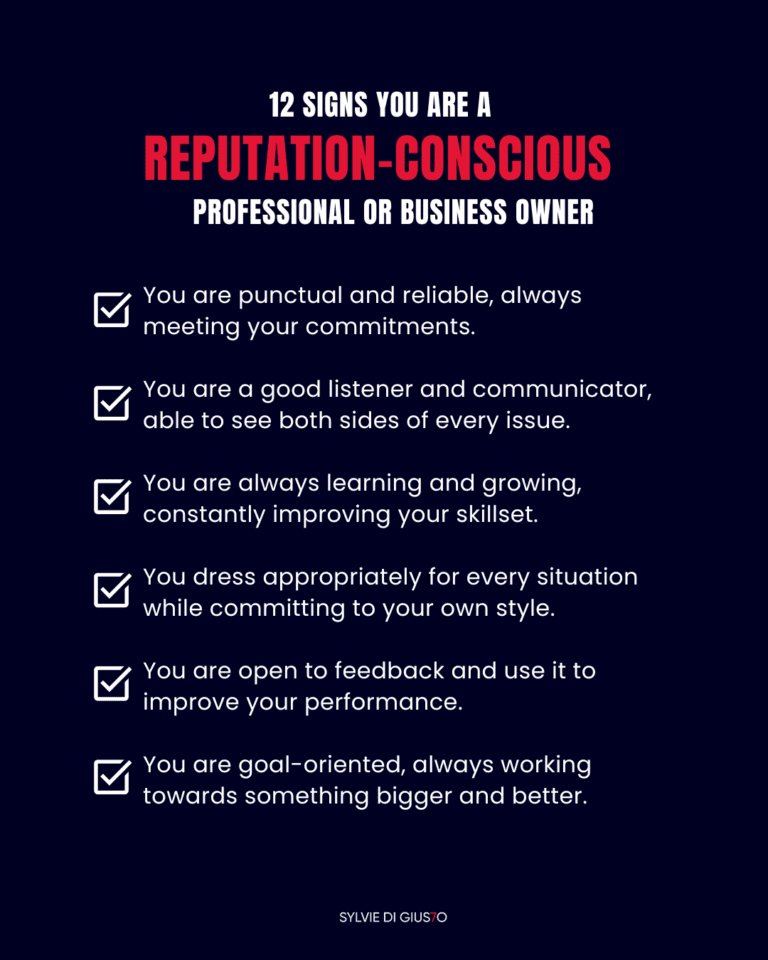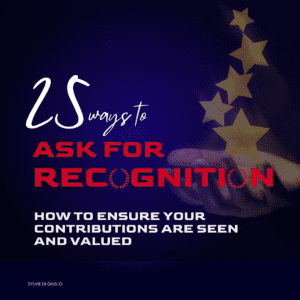What does reputation mean for you at work?
Defining Reputation - What It Is and What It Isn't
Reputation is often seen as a measure of success or worthiness. It’s the perception others have of us, shaped by our actions and words. It’s something that’s invisible yet consequential. And while others largely determine our reputation, we have some control over it. We can be intentional about the way we present ourselves and the message we want to send. We can also be proactive in defending our reputation when it’s challenged. In short, it’s something that we can’t fully control, yet also something we can influence.
However, it is essential to remember that reputation is not an objective measure. It is based on the opinions of others, and outside forces can easily influence it. For example, consistent positive actions can build a positive reputation over time. However, it can also be quickly tarnished by a single mistake. Similarly, a negative reputation may not be accurate or fair, but it can still significantly impact someone’s career. In short, reputation is a complex and often subjective concept and should not be used as a definitive measure of worth or ability.
The Importance of Having an Outstanding Reputation
A strong reputation is essential for several reasons. First, decision-makers are often influenced by the opinions of others. If you have a strong reputation, it’s more likely that they’ll trust your judgment and give you opportunities for career advancement. Second, a strong reputation can give you an advantage when competing for jobs or clients. Even if you’re not the most qualified candidate, employers and clients are more likely to choose someone with a good reputation. Finally, a strong reputation can lead to opportunities you wouldn’t otherwise have. In short, a strong reputation can open doors and help you achieve your goals.
Overall, it’s essential to be mindful of how you present yourself at all times. The consequences of not doing so can be costly – you may miss out on job opportunities or have difficulty advancing in your career. On the other hand, if you take the time to cultivate a positive reputation, the possibilities will be endless.
What Does Reputation-Conscious Mean?
When we think about reputation, we often consider what other people think of us. But reputation is also about how we see ourselves. A reputation-conscious person is aware of their image and strives to maintain a positive self-image. This can manifest in several ways, such as dressing neatly or speaking politely. But it also goes deeper than that.
A reputation-conscious person is always aware of how others will perceive their actions. They are mindful of their impact on others and work to ensure that they are always putting their best foot forward.
Also, in today’s world, where our online presence is often the first impression we make, reputation consciousness is more critical than ever. Whether creating an online profile or posting on social media, we need to be aware of how others will receive our words and actions.
Reputation consciousness isn’t about being perfect; it’s about being conscious of our impact on those around us and ensuring that we are always putting our best selves forward.
Things You Can Do to Maintain a Terrific Reputation
Building and maintaining an excellent reputation takes effort, but it’s worth it. People with solid reputations are trusted more, treated better, and got more opportunities. Here are four things you can do to ensure your reputation is as strong as it can be.
First, be consistent. If you’re known for being reliable, make sure you always follow through on your commitments. If you’re known for being a great leader, ensure you’re always behaving in a way that inspires others. The key is to align with the image you want to project.
Second, don’t take shortcuts. It can be tempting to cut corners when you’re under pressure, or things are getting tough, but doing so will damage your reputation over time. People will catch on that you’re not as reliable or trustworthy as you seem, and they’ll start to wonder what else you might be willing to sacrifice to save time or money.
Third, stay humble. It’s crucial to own your accomplishments and feel proud of what you’ve achieved, but it’s just as important not to let success go to your head. Remember that no one is perfect, and even the most successful people have room for improvement. By staying humble, you’ll avoid coming across as arrogant or entitled – two major red flags when it comes to reputation management.
Finally, don’t be afraid to admit when you’ve made a mistake. Everyone messes up from time to time, but how you handle those mistakes really matters. If you own up to your errors, apologize sincerely, and take steps to make things right, people will respect you for it – even if they were initially disappointed or upset by your actions.
Still Not Sure What Does Reputation Mean and If You Are a Reputation-Conscious Professional?
Try thinking about how you act and what you say in various situations. Do you actively work to put your best self forward, or are you more concerned with maintaining the status quo? Do you think carefully about how others might perceive your actions or words, or do you tend to go with your gut? Or, are you someone who typically avoids taking risks or making decisions simply because you’re afraid of how they might impact your reputation?
Reflecting on these questions can help you get a better sense of where you stand when it comes to reputation management. If you’re ready to question yourself, here are 12 signs that you might (or might not) be a reputation-conscious professional:
1. You are Careful About What You Say In-Person and Online
Have you ever had one of those moments when something just slips out of your mouth, and you instantly regret saying it? It happens to us all, and it may continue to happen. However, you can reduce these incidents by thinking about what you will say before you say it. You must also be aware of topics that may potentially offend others and keep them out of the conversation.
When it comes to what you post online, you must be especially careful. Once something is posted online, it’s hard to take it back. Someone may have seen it and taken a snapshot even if you delete it. Fortunately, online posting requires more thinking in advance than talking. So, you have time to decide whether you want to publish something before making it public.
2. You Always Act with Integrity, Even When No One is Watching
Integrity means doing the right thing, even when no one is watching. It means following your moral compass and doing what you believe to be correct, even if it’s not an easy or popular choice. If you are a reputation-conscious professional, this comes naturally to you.
But these days, you can never be sure who is watching you as well. What’s more, you can never be sure when someone posts your actions on social media without you knowing. That’s why you need to act with integrity no matter what. Pay attention to what you wear, your behavior, and how you treat others in all circumstances. Doing so will help you maintain a reputation you can be proud of.
3. You are Calm and Levelheaded, Even in Challenging Situations
Remember that earlier section where we discussed how easy it is to let the wrong thing accidentally slip out of your mouth? Well, that’s much more likely to occur if you’re in a stressful situation. As a professional, you may find yourself often in stressful situations, and it’s essential to learn how to deal with them appropriately. Emotional balance and control are critical. If you’re someone who typically handles stress well, then you likely possess the skills needed to be a reputation-conscious professional. But if you tend to get worked up easily or impulsively make decisions, it may be worth thinking about how to better deal with such challenges in the future.
4. You are Open to Feedback and Use it to Improve Your Performance.
If you are visible in the business world, you will likely get feedback that may not always be easy to take. There are two things to keep in mind when you receive feedback.
- Never show you are visibly offended by feedback. Even if you disagree, you must accept it graciously and acknowledge what people say. Not doing so makes you seem like you are not making others’ opinions a priority (even if you don’t.)
- Learn from feedback. It can be hard to admit you are wrong. But if you know the person giving you feedback has a valid point, or if you hear the same kind of feedback, again and again, it’s probably time to consider it.
5. You Take Responsibility for Your Mistakes and Learn from Them
Mistakes are not failures but rather opportunities to learn. If you are consistently making mistakes, whether, with your communication or something else, you need to evaluate what you are doing wrong and where you can improve. For other people to give you their trust again after a mistake, you must show them that you take responsibility for your actions and are doing everything you can to make things right. This is key in building and maintaining your reputation.
One mistake may not hurt your reputation. But if you keep making the same mistakes again and again and refuse to learn from them, it can begin to damage your reputation. If a mistake was made, determine the source of the problem. Avoid taking the same actions in the future.
6. You are Flexible and Adaptable, and Learn How to Roll with the Punches
The business climate is constantly changing. Trends come and go, and the technology that was used yesterday is outdated today. You will also have to accommodate for everyday unpredictability, including canceled meetings, altered business plans, and changes in priorities. As a reputation-conscious professional, you must be able to roll with the punches and adapt quickly to new situations without letting your emotions get the best of you. Yes, change can be nerve-racking, but if you are unable to change with the unique circumstances or directions, you will be seen as challenging to work with and outdated.
7. You are Punctual and Reliable, Always Meeting Your Commitments
Let’s face it; the world is full of flakes. People are late to meetings and don’t come through on their commitments. To be seen as the reliable, professional others turn to and trust, you must always ensure your obligations are met. If you want to be successful, you need to stand out in this capacity. You must be on time and do what you say you will do. This will establish you as a reliable person, so people will want to work with you.
8. You are a Good Listener and Communicator, Able to See Both Sides of Every Issue
Listening and communicating skills are fundamental. If you don’t listen and communicate well, it could lead to miscommunications which can cause work to turn out poorly. It also shows that you are not making others a priority. Active listening allows you to be aware of others’ situations and needs, which will help you maintain positive relationships and see all sides of the story. You must be open-minded to what your colleagues, managers, or clients have to say. This attitude will come off as positive and help you get the best outcomes for everyone involved in the project.
9. You are Always Learning and Growing, Constantly Improving Your Skill Set
It’s not enough to meet others’ expectations. You want to exceed their expectations (and maybe even yours.) You can do this by continuing to learn and grow. Set goals for yourself and, if necessary, seek training or mentoring to achieve them. You will not only be seen as someone dedicated to self-improvement and professional growth, but you will also be a more valuable asset to the company or project team.
Let’s say a client uses you for a job, and all goes well, so they hire you again. But when they work with you again, they find that you’ve improved your payment system to make payments even more convenient. Or perhaps you’ve upped your game in terms of the designs you provide. Learning and growing will help you provide better service to clients every time you work with them. It will also help you stay on top of the competition. It will establish you as someone innovative in your field.
10. You Dress Appropriately for Every Situation While Committing to Your Style
Dressing appropriately doesn’t mean that you have to force yourself into a cookie-cutter approach. It simply means that you have the capacity to understand your audience and adjust accordingly. For example, if you are meeting with a corporate client, it is crucial to dress professionally. But it’s okay to dress down if you find yourself at an outdoor venue or casual office. You will still be seen as someone who cares about your work and the people around them.
11. You are Goal Oriented, Always Looking for Something Bigger and Better
It’s one thing to do your job; it’s another to help you and others, such as your clients, achieve your goals. It’s important to be goal focused on all tasks that are in front of you. That means you are always working towards something more significant. It will help your clients move forward, and it will help you grow your business. Clients like working with goal-oriented professionals because they can see the value of your work. It shows that you are committed to assisting others in meeting their goals, and this adds an element of trust to the relationship. If a client knows that you care about them achieving their goals, then they will be more likely to use your services again in the future.
13. You are Consistent in Your Values
In today’s world, it’s essential for brands to have values. The same is true for you as a professional. Whether you are working with clients, colleagues, or managers, it’s crucial to maintain your values and be consistent in your actions. This will help build trust between you and others. It will also show them that you are committed to your goals and that they can count on you for quality work every time.
Reputation is an essential aspect of our lives, both personal and professional. We should all take it seriously and work to build a positive reputation. There are many ways to improve your reputation, both at work and in your personal life. If you have a negative reputation, don’t despair – there is still hope! A strong reputation can bring many benefits, so it’s worth nurturing and protecting it.
What does reputation mean to you?
What does reputation mean in a nutshell




PS: Interested in more content like this? Make sure to follow me on Instagram. It’s where I visualize and publish my thoughts daily. I hope to see you there.




